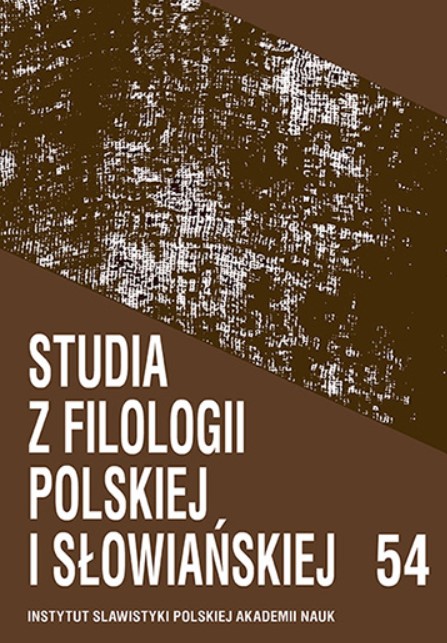Мотивационные модели названий интеллектуальных процессов и свойств (на материале восточнославянских языков)
Motivation Models of the Names of Intellectual Processes and Properties (on the Material of East Slavic Languages)
Author(s): Alena RudenkaSubject(s): Theoretical Linguistics, Semantics, Cognitive linguistics, Eastern Slavic Languages, Philology
Published by: Instytut Slawistyki Polskiej Akademii Nauk
Keywords: cognitive linguistics; diachronic linguistics; historical semantics; motivation;
Summary/Abstract: This article offers an analysis of motivation models of the names of intellectual processes, properties and states in East Slavic languages at different stages of their development. Focusing on the Belarusian and Ukrainian material, the study adopts the approach of diachronic cognitive onomasiology, according to which the study of nomination processes helps to understand mechanisms of verbal thought. The analysis revealed source frames of the names of cognitive activity: perception, psycho-emotional sphere, space, movement, physical activity, physical characteristics, social sphere, physiology, speech activity and light. The relative number of nominations formed by a particular model is proportional to the use of the corresponding metaphor in communication. Modern East Slavic languages are very similar in terms of their nomination models of cognitive processes, properties and states. However, differences between modern Belarusian and Ukrainian on the one hand, and the language of the Grand Duchy of Lithuania on the other, are more significant.
Journal: Studia z Filologii Polskiej i Słowiańskiej
- Issue Year: 2019
- Issue No: 54
- Page Range: 1-13
- Page Count: 13
- Language: Russian

